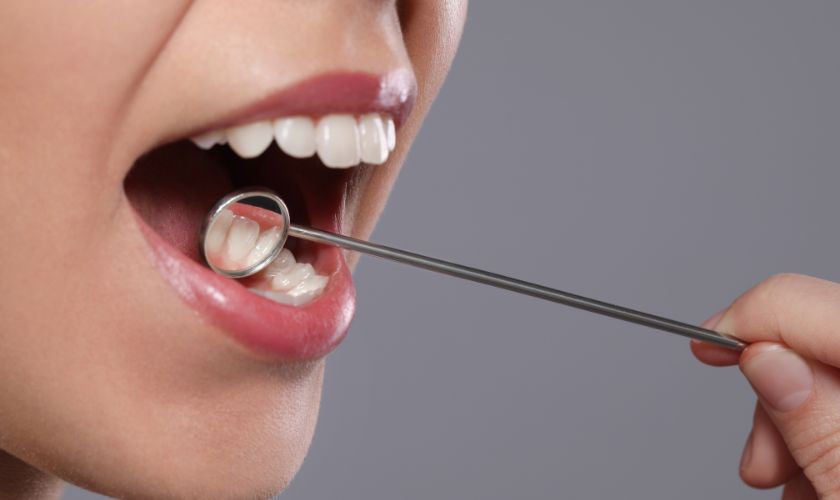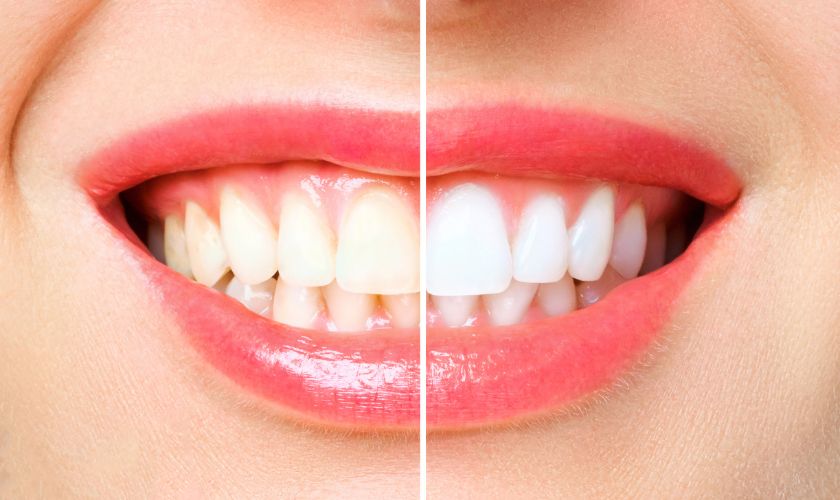Have you ever found yourself trying to hide your bad breath? It’s a common problem that affects millions of people every day. But did you know that bad breath can be connected to something more serious than just what you ate for lunch? Gum disease, also known as periodontal disease, is a common condition where the gums and supporting tissues around the teeth become inflamed and infected. In this blog post, we’ll explore how gum disease and bad breath are connected, what causes bad breath, and most importantly – how to prevent it! So let’s dive in!
What is gum disease?
Gum disease, also known as periodontal disease, is a common dental condition that affects the gums and supporting tissues around the teeth. It’s caused by bacteria in dental plaque, which can cause inflammation and infection of the gum tissue.
The earliest stage of gum disease is called gingivitis, which causes redness and swelling of the gums. If left untreated, it can progress to periodontitis – a more severe form of gum disease that affects not only the gums but also the bone structure that supports your teeth.
The symptoms of gum disease include bleeding or swollen gums, bad breath (halitosis), loose or shifting teeth, and receding gums. In some cases, you may experience no symptoms at all until it has progressed to an advanced stage.
It’s important to take care of your oral health by brushing twice daily with fluoride toothpaste and flossing regularly between your teeth. Regular visits to your dentist for check-ups and professional cleanings are crucial for maintaining healthy teeth and preventing gum disease from progressing further.
Causes of Bad Breath
Bad breath is something that most people experience at some point in their lives. It can be a source of embarrassment and social anxiety, especially when it’s chronic. There are several different causes of bad breath, ranging from poor oral hygiene to underlying medical conditions.
One of the main causes of bad breath is food particles getting stuck in between teeth or on the tongue. This creates an environment for bacteria to grow, which results in unpleasant odors. Additionally, certain foods like garlic and onions can cause temporary bad breath due to their strong flavors.
Poor oral hygiene habits such as infrequent brushing and flossing also contribute to halitosis. When plaque builds up on teeth and gums, it releases sulfur compounds that produce foul-smelling gases.
Other potential causes include dry mouth (xerostomia), smoking or using tobacco products, medications that reduce saliva production (such as antihistamines), infections in the sinuses or throat, and gastrointestinal issues like acid reflux disease.
It’s important to identify the root cause of your bad breath so you can take appropriate steps toward treatment and prevention. Maintaining good oral hygiene practices is key alongside regular dental cleanings with a professional dentist
The connection between Gum Disease and Bad Breath
Did you know that bad breath can be a sign of gum disease? Gum disease, also known as periodontal disease, is caused by the buildup of bacteria and plaque in the gums. When left untreated, it can lead to serious oral health problems including tooth loss.
One of the most common symptoms of gum disease is bad breath. This is because the bacteria that cause gum disease release foul-smelling gases as they feed on food particles and debris in your mouth. These gases are what cause bad breath.
But it’s not just about unpleasant odors – gum disease and bad breath are actually interrelated issues that can worsen each other over time. As gum disease progresses, it causes inflammation and bleeding in the gums which creates pockets where more harmful bacteria can thrive.
This cycle leads to even worse cases of halitosis (bad breath) as well as more severe symptoms such as receding gums or loose teeth. That’s why treating gum disease early on is so important for maintaining good overall oral health.
If you’re experiencing persistent bad breath or suspect you may have gum disease, don’t wait – schedule an appointment with your dentist today! They will be able to evaluate your oral health and provide treatment options tailored to your specific needs.
How to Prevent Bad Breath
Preventing bad breath is a crucial step in maintaining good oral hygiene. Here are some tips to help you keep your breath fresh:
1. Brush and floss regularly: Brushing twice a day and flossing once daily helps remove food particles and plaque that can cause bad breath.
2. Use mouthwash: Mouthwash can kill bacteria in the mouth, which helps prevent bad breath.
3. Stay hydrated: Drinking plenty of water keeps your mouth moist, which prevents dryness that can cause bad breath.
4. Watch what you eat: Foods like onions, garlic, and spicy foods can cause temporary halitosis (bad breath).
5. Quit smoking: Smoking not only stains teeth but also dries out the mouth leading to unpleasant odor.
6. Visit your dentist regularly: Regular dental check-ups ensure any gum disease or cavities are treated before it worsens causing chronic halitosis.
By incorporating these simple steps into your routine, you’ll be able to combat any potential causes of bad breath while promoting a healthy smile!
Conclusion
Bad breath is a common problem that affects many people. While it can be caused by various factors, poor oral hygiene and gum disease are among the leading causes. Gum disease is an infection in the gums that can lead to tooth loss if left untreated.
By maintaining good oral hygiene habits such as brushing twice daily, flossing regularly, and visiting your dentist for regular check-ups, you can prevent gum disease and bad breath. It’s also important to maintain a healthy lifestyle by eating a balanced diet and avoiding tobacco products.
If you’re experiencing consistent mouth odor even after practicing proper oral hygiene routines or have symptoms of gum disease like bleeding gums or sensitive teeth, make sure to schedule an appointment with your dentist who will recommend appropriate treatments based on the severity of your condition.
Visit Smiles of Punta Gorda
We can see you as soon as tomorrow!





